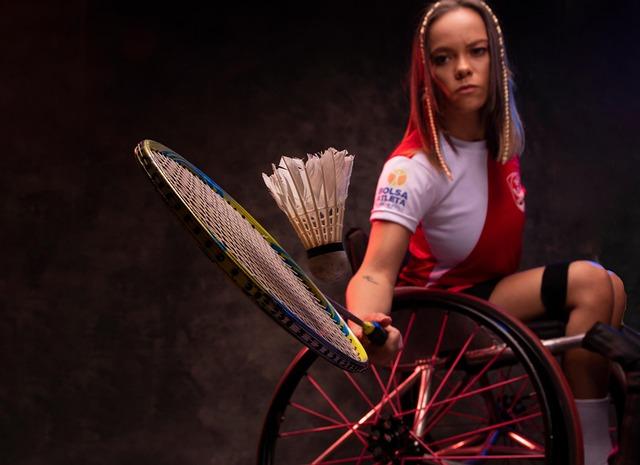In recent years, the intersection of faith and athletics has sparked significant debate across the sports world. Athletes increasingly seek to express their religious beliefs openly while pursuing their professional careers, raising questions about policies, accommodations, and respect for individual rights. In Maryland, this conversation has taken on new urgency as local athletes advocate for the freedom to practice their religion without compromising their ability to compete. This article explores the arguments surrounding the rights of athletes to observe their faith alongside their sporting commitments, highlighting perspectives from Maryland’s sports community and legal experts.
Athletes Balancing Faith and Competition Face Unique Challenges
For many athletes, faith is more than a personal belief-it’s a core aspect of their identity that influences how they train, compete, and recover. Balancing religious observances with the rigorous demands of competitive sports can create complex situations, such as scheduling conflicts with important religious holidays, dietary restrictions during competition, or needing time for prayer. These challenges are often magnified in high-stakes environments where even minor deviations from training routines can affect performance. Yet, the right to maintain religious practices should not be seen as a hindrance but rather an essential component of an athlete’s holistic well-being.
Institutions and governing bodies can foster inclusivity by recognizing and accommodating these needs. For example, some leagues have adjusted game times to avoid conflicts with major religious events, while teams provide alternative meal options for players with dietary restrictions tied to their faith. The table below highlights a few common accommodations that demonstrate how sports organizations strive to support diverse religious practices without compromising competition integrity.
| Religious Practice | Typical Challenge | Common Accommodation |
|---|---|---|
| Daily Prayer | Scheduling during training/competition | Designated prayer spaces and breaks |
| Fasting Periods | Energy and hydration management | Modified training intensity and timing |
| Dress Codes | Uniform requirements | Provision of modest or faith-based athletic wear |
Legal Protections for Religious Expression in Sports Environments
Athletes’ rights to express their religious beliefs while participating in sports are safeguarded under a variety of legal frameworks, most notably the First Amendment’s guarantee of free exercise of religion and several federal laws such as Title VII of the Civil Rights Act. These protections extend beyond mere tolerance, compelling sports organizations and employers to accommodate sincerely held religious practices unless doing so would cause undue hardship. This means that athletes can wear religious symbols, observe dietary restrictions, or pray openly without fear of discrimination or penalty. However, the balance between religious freedoms and maintaining fair, safe competition often requires thoughtful dialogue and clearly defined policies.
Legal precedents and guidelines prioritize inclusivity while respecting the diversity of belief systems in sports environments. For instance, schools and professional leagues are expected to:
- Provide reasonable accommodations such as scheduling adjustments for religious observances.
- Prohibit discrimination based on religious attire or practices during competitions.
- Ensure training for coaches and staff on religious rights and cultural sensitivity.
| Legal Protection | Key Provision | Application in Sports |
|---|---|---|
| First Amendment | Free Exercise Clause | Allows religious expression on and off the field |
| Title VII, Civil Rights Act | Prohibits employment discrimination | Requires reasonable accommodations for religious practices |
| Equal Access Laws | Ensures equal opportunity | Supports use of school facilities for religious activities |
Promoting Inclusive Policies to Support Religious Practices in Athletics
Creating an environment where athletes can fully express their religious identities while competing is essential to fostering fairness and respect across all levels of sports. This involves developing policies that recognize religious attire, prayer times, and dietary requirements without compromising the integrity of the game. Schools, colleges, and professional organizations are increasingly called upon to revise outdated rules that unintentionally exclude or penalize athletes for their faith-based practices. By incorporating flexible scheduling, permitting religious clothing such as hijabs or kippahs, and accommodating fasting periods, institutions demonstrate a commitment to both diversity and inclusion.
- Flexible dress codes that allow religious garments while maintaining safety standards
- Breaks or time allowances for prayer or religious observances during tournaments and practice sessions
- Nutritional accommodations tailored to fasting athletes to ensure health and performance
| Policy Element | Purpose | Impact |
|---|---|---|
| Religious Dress Allowance | Permit modest attire and head coverings | Enhances participation; prevents discrimination |
| Scheduling Flexibility | Accommodate religious holidays and rituals | Reduces conflicts; respects beliefs |
| Dietary Support | Adjust meals during fasting periods | Maintains athlete health and performance |
Adopting inclusive policies not only supports individual athletes but also enriches the sporting community as a whole. It sends a powerful message that athletic excellence and religious expression are not mutually exclusive but can coexist harmoniously. As more organizations embrace these progressive measures, the playing field becomes more equitable, encouraging diverse talent to thrive without sacrificing personal belief. The ongoing dialogue between athletes, coaches, and governing bodies is crucial in ensuring that future policies remain responsive and effective.
Recommendations for Coaches and Organizations to Uphold Religious Rights
Coaches and sports organizations play a pivotal role in ensuring that athletes can freely exercise their religious beliefs without facing discrimination or exclusion. It is essential for coaches to cultivate an environment of respect and accommodation by learning about diverse religious practices and adjusting training schedules or game plans when necessary. Providing designated spaces for prayer, allowing flexible attire choices, and understanding significant religious observances are simple yet powerful steps to demonstrate support. Furthermore, organizations should implement clear policies that protect religious expression while maintaining competitive fairness, signaling a firm commitment to inclusion and equity across all levels of sport.
To effectively uphold athletes’ religious rights, organizations can adopt practical measures as outlined below:
- Educational Workshops: Regular training for coaches and staff on religious literacy and sensitivity.
- Flexible Scheduling: Allowing athletes to observe important religious holidays or daily rituals without penalty.
- Dress Code Adjustments: Permitting religious attire such as hijabs, yarmulkes, or crosses that comply with safety standards.
- Clear Reporting Channels: Establishing confidential means for athletes to report any infringements on their religious rights.
| Responsibility | Action | Benefit |
|---|---|---|
| Coaches | Adapt practice times around religious commitments | Enhanced athlete trust and morale |
| Organizations | Implement inclusive policies and training | Legal compliance and positive public image |
| Teams | Encourage open dialogue about beliefs | Stronger team cohesion and respect |
In Conclusion
In a landscape where sports and personal beliefs frequently intersect, the discussion around athletes’ right to freely practice their religion alongside their professional commitments remains as relevant as ever. Advocating for respect and accommodation within athletic institutions not only upholds individual freedoms but also enriches the diversity of the sporting community. As Maryland continues to navigate these conversations, it is clear that supporting athletes in both their faith and their sport is essential to fostering an inclusive and equitable environment for all.





